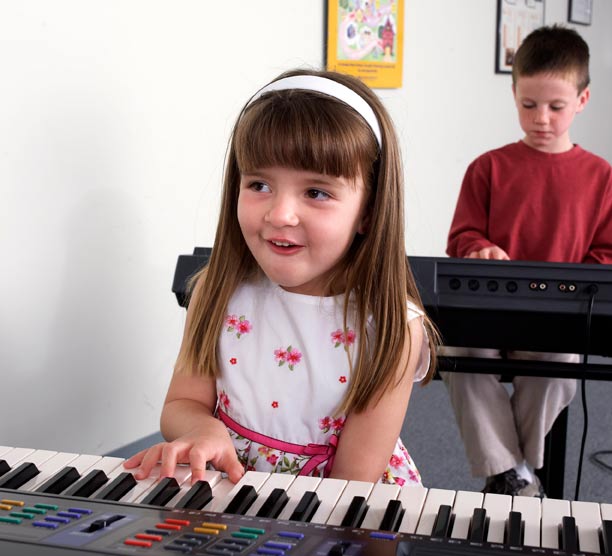
When children are about six or seven years old many parents begin to wonder if it is time to enroll them in piano lessons. Piano teachers might want to check to see if the child’s hand is ready or whether the child is mature enough to practice or can read and follow directions. But did you know that the optimum time for training the musical ear begins much earlier than this?
At three years old your child’s brain is already highly receptive to analyzing the world of sound. If a child is immersed in music at an early age and given a structure in which to explore music- making, the brain can become “hard-wired” for music. Just as a child exposed to one or more languages will learn to speak them all fluently, the young child acquires fluency in music by much the same means.
Allow me to introduce you to Yamaha Music Education. Yamaha has two delightful music education programs designed specifically for the preschool years when children are so receptive to music, but need to learn in a special way appropriate for their age.
 Music Wonderland is a delightful parent and child class designed to appeal to the imaginative mind of the three year old.
Music Wonderland is a delightful parent and child class designed to appeal to the imaginative mind of the three year old.
Yamaha Junior Music Course (4 and 5 year-olds) gives young children a foundation in the building blocks of music: lyric singing, the solfege (do re mi) rhythm, movement, piano playing, musical notation, and musical appreciation. Children learn to hear, sing and play music long before they are ready for a “traditional” piano lesson.
Oh ,and did I mention Yamaha Music Courses are REALLY FUN ?! Parents and children spend quality time together. We sing, dance and play! Also, the take-home materials – books, CDs and videos are all top-quality.
Yamaha classes are offered by certified instructors in two semesters beginning in September and February. Jordan Kitt’s studio locations are Beltsville, Fairfax, Rockville, and Sterling. Check us out on the web at www.keyboardcenter.com or follow the music education link at www.jordankitts.com
Pat Keithly
Teaching Specialist
Studio Manager




